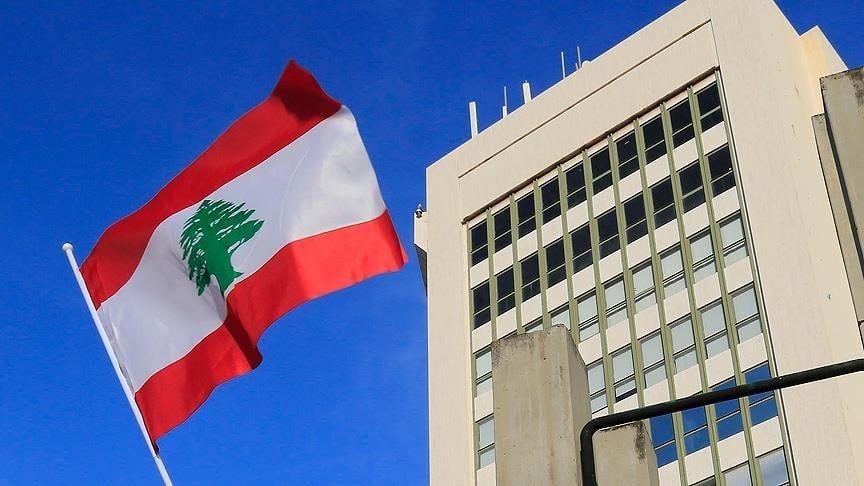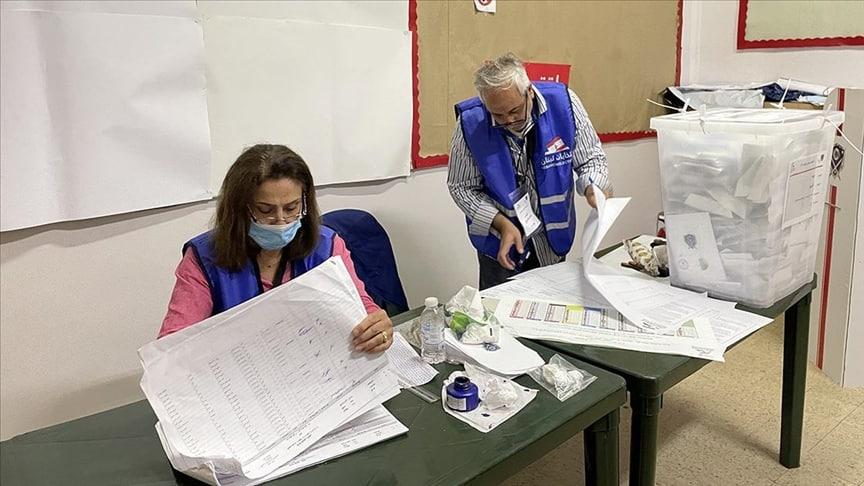Economic crisis amid struggle for power in Lebanon Analysis by Maxim Petrov
On May 20, Lebanon's cabinet adopted a financial recovery plan needed to receive aid from the IMF. "Any delay in the implementation of the plan will cost the Lebanese very dearly," Prime Minister - billionaire Najib Mikati said at a press conference after the government meeting.
The International Monetary Fund and Lebanon reached a conditional agreement in April this year to provide the country with $3 billion in aid. It will be possible to receive them in case of reforms, including a financial recovery plan, which, according to Al-Monitor, is one of the many preconditions for receiving the aid package. At the same time, Al-Monitor notes, "analysts have expressed scepticism that such reforms can be carried out".
The implementation of the economic reform plan will depend on parliament. What makes the situation quite intriguing is that the government session took place five days after Lebanon held its parliamentary elections.
Thus, the new government and parliament will already have to implement the plan approved by the outgoing cabinet. However, hopes for a quick formation of such a government could crumble at a time when the country is at the bottom of the deepest economic crisis, when the most powerful party, Hezbollah, whose nominee is acting prime minister Najib Mikati, lost the election and is unlikely to cede power when only 41% of voters turn out and there is a risk of society descending into civil war.
Lebanon's parliament is divided along religious lines. The reserved seats in each constituency are distributed on the basis of demographic proportions (so many seats for Christians, Shiite Muslims, Sunni Muslims, etc.). Elections are actually held within each ethnic-confessional community, where various lists and parties compete, and then the winners form the majority government. In addition, the current rules require a Maronite Christian to be president, a Sunni Muslim to be prime minister, a Shiite Muslim to be speaker of parliament, and Christians and Muslims must be equally represented in the government.

In a real sense, there are several parties within each community. They are led by the richest, most influential families, who have their own militants. These families, in various configurations, form the Lebanese ruling class - political and economic. The seats in the state apparatus are shared among the families and are seen as a source of corrupt income and as a way to direct funds into the pockets of these families and their subordinate parties. The same parties and families are linked to the leadership of Lebanese banks and are involved in financial speculation and various machinations. Combined with the low level of competence, this system leads to a dire political-economic situation and a crisis. This causes the growing protests of the working and unemployed population of all faiths, as well as small businesses.
The situation has deteriorated in recent years due to a number of catastrophic events, including the pandemic, the collapse of the Lebanese pound, and the enormous explosion in the port of Beirut on August 4, 2020, nearly destroying half of the Lebanese capital.
A monstrous economic crisis deprived the population of access to basic services such as medicine, fuel, and electricity. Power cuts have become commonplace, and food prices have risen sharply. Lebanon suffers from triple-digit inflation, skyrocketing poverty rates, and a collapsing currency after defaulting on its debts in 2020.
The UN Special Rapporteur on Poverty, Olivier de Schutter, called Lebanon a "failed state" in which four out of five people live in poverty. He stressed that "the political leadership is disconnected from reality and does not see the despair in which the population is plunged, while it is the Lebanese leaders who have ruined lives", and added that "Lebanon is also the country with one of the highest inequality rates in the world".
The May 15 election was held amid such a deplorable situation. In this election, the coalition led by the Shiite pro-Iranian Hezbollah party in alliance with the Shiite Amal movement and the Christian Free Patriotic Movement (FPM) was defeated, winning 62 of 128 seats (they won 71 in the 2018 elections). The former governing coalition of the Shiite Hezbollah and Amal parties and the Christian FPM was crushed, primarily because of the FPM's falling popularity.
The winner was the Opposition Christian Party Lebanese Forces (LF), which is pro-Saudi and pro-American. It became the largest Christian party in parliament, winning 19 mandates. Their allies are various Sunni and other parties or independent candidates. Moreover, while the former ruling coalition focused on Iran, the LF and some of their Sunni allies are affiliated with Saudi Arabia. Thus, events in Lebanon also depend on the struggle of regional powers.
The situation is aggravated due to several circumstances. First, as Sami Atallah, head of the Beirut branch of the Political Initiative think tank, has observed, near the end of 2022, when it comes to electing a new speaker and appointing a prime minister, and voting on the presidential nomination, the various parliamentary factions will certainly want to cross swords.
Second, Hezbollah and the LF are not only political but also military adversaries (with Iran and Saudi Arabia behind them, respectively). Armed clashes occasionally erupt between these parties. In October, for example, there were shootings between Hezbollah and LF fighters in Beirut.

Hezbollah MP Mohammed Ra'ad warned other parties to "pay attention to their political discourse and behavior and to the future of the country", and urged them not to be "fuel for a civil war." Hezbollah loyalist Al-Mayadeen channel reported this. Ra'ad also said that the various Lebanese parties would "lead Lebanon into the abyss" if they refused to form a national unity government.
These are typical tactics of pro-Iranian militias and affiliated parties. These forces have resorted to the same tactics in Lebanon today, as they did in Iraq. They are demanding (in both cases) a large governing coalition. Such a large government, consisting of a mass of competing parties, usually does not function well because of disagreements between the parties, and the latter is mainly busy lining their own pockets. All this allows the pro-Iranian forces in Lebanon and Iraq to control the situation by using the military power of their militias (Hezbollah is the most powerful armed group in the country) and influence the power structures, as well as through alliances with some government parties, and by appointing their people to advantageous positions.
When pro-Iranian forces lose elections, they demand large coalition governments in order to retain power anyway. Otherwise, they threaten unrest and violence. However, their opponents are also prone to intervene in the political process by force.
The extremely low voter turnout (41%) is noteworthy. About the same number (43%) showed up for the elections in Iraq last year, and 49% showed up for the elections in Iran (including the many millions of state employees forcibly displaced by the Iranian authorities). The majority of the population in these countries - primarily the rebellious youth, students, the working class, and the unemployed - no longer trust incumbent politicians.
In the fall of 2019, Iran, Iraq, Lebanon, and Syria were rocked by massive social protests involving millions of people. They demanded jobs, clean water, cheap or free medicine, and other basic services. Some observers have called these events "Arab Spring 2.0." Since then, the problems have not dispersed on their own, nor has the anger of the social grassroots in the Middle East disappeared. From time to time, similar protests, albeit on a smaller scale, erupt in these countries.
Thus, Lebanon is likely to face a political factional struggle in the near future over the right to form a new government, a struggle amid economic crisis, social revolts, and rivalry among party militias. All this time, reforms will not be carried out, which means that Lebanon will not receive money, and the situation of the country's economy is unlikely to improve.








